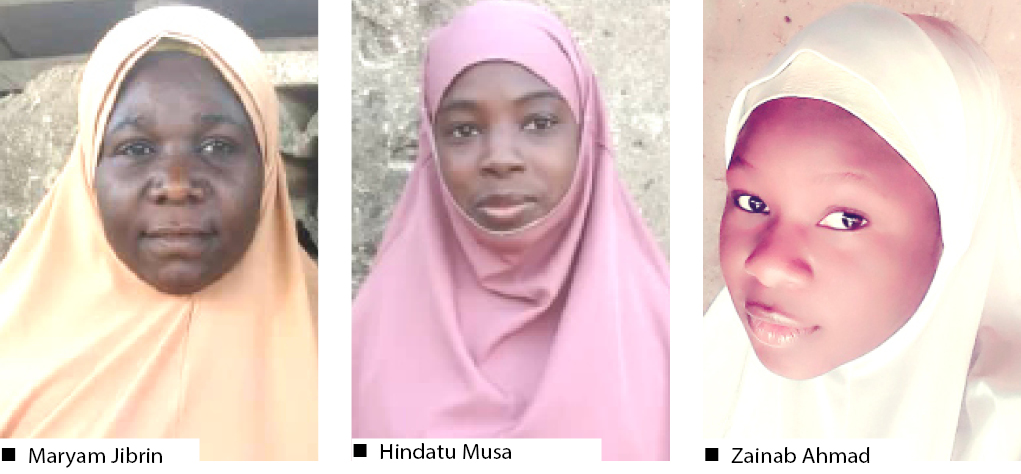Maryam Jibrin finished secondary school in the year 2000 at the Government Comprehensive Day Secondary School, Gombe, and got married to her heartthrob and as a result relocated to Nafada, a rural local government area in the northern part of the state capital, Gombe.
At the time Maryam arrived Nafada in 2004, there was no higher institution in the town, the closest being the Federal College of Education (Technical), Gombe, located over 100 kilometres.
Despite her desire to further her education, she had to remain as a fulltime housewife and waited for almost 16 years before an opportunity presented itself in 2016, when she got admission into the newly established Gombe State College of Education and Legal Studies in Nafada Local Government Area of the state, located about 118 kilometres from Gombe, the state capital.
Maryam is not the only one who could not further her education immediately finishing secondary school, but so are many girls whose desire to further their education was cut short as a result of early marriage, lack of funds, location of higher institution, cultural beliefs, among other factors.
Following the establishment of the college in 2014 by the administration of former Governor Ibrahim Hassan Dankwambo, to provide opportunities, especially for a girl-child to acquire education, many women who failed to go to school earlier are now going back to school to further their education.
- Technological reforms key to effective justice dispensation – NJI administrator
- FG to install scanners at Abuja, Kaduna, Kano railway stations
Before the establishment of the College, girls were mostly married off before they could even finish secondary school. Locals said most of the women are taken to husbands’ houses without skills or capital to start a business.
Maryam, whose six children didn’t deter her from enrolling at the college, where she graduated with a diploma in Shari’a and Civil Law as the first graduation set of the college in 2019, expressed satisfaction with the transformation in her life through the education she acquired at the college. Consequently, Maryam and some of her course mates are now advocating other girls, especially married women to enroll in the college.
“We have been preaching to our husbands to allow their wives to join the college and acquire higher education. One need not be working after graduation, but even the way an educated woman handles her home is far different from an uneducated woman,” she said.
She further said: “The establishment of the college has given further opportunities for women and it has reduced the issue of early girl-child marriage. Seeing people like us has encouraged more men to allow their wives and daughters access to education, especially beyond secondary school.”
While noting that the community secondary school in addition to the College of Islamic and Studies, has helped tremendously as the town witnessed increase in enrolment in girl-child education, she said before the coming of the college, most girls are married off, with some even after Junior Secondary School certificate, at the age of just 15 years.
Daily Trust gathered that through the efforts of Maryam and other members of her group, numerous girls have continued their education, especially at the College of Education and Legal Studies in Nafada and some parents, who finds it difficult or could not afford to sponsor their wards to study outside Nafada, are now enrolling their daughters without fear of their moral upbringing.
“Parents are now comfortable with their children attending higher institutions from the comfort of their houses,” Maryam noted.
Zainab Ahmad who bagged a diploma in English Education from the college in 2019, said she is one of the beneficiaries of the self-help group that encourages girl-child education in Nafada town.
Zainab who was married off at the age of 16 before she could even finish her secondary school education said: “I was still in secondary school when I got married. I have a son from the marriage and even though I wrote SSCE from my matrimonial home, I was a complete housewife without a job or any skill throughout my three years stay with him.”
She further said: “My first husband is a low-income earner and when the marriage ended, I had to go back to my parents’ house helplessly. But when the college opened in 2016, I got admission and sold some of my belongings to do the registration.”
Zainab added that there were only eight female students in a class of about 80 students, with only two of them from Nafada LGA. And since her graduation, she has been teaching at the Community Secondary School, Nafada as a casual staff member.
“Establishment of the college in Nafada town gave me an opportunity for higher education. About 70 of us finished secondary school in 2015, but all the rest are now married and living as complete housewives. Most of them have six to seven children. And they have to engage in petty trading to support their households,” she said.
The college, according to her, gave an opportunity for girls in Nafada to study beyond secondary school and as a result, exposed them to better life even in their respective husbands’ houses, compared to the uneducated ones.
Another beneficiary, Hindatu Manu Musa, said even before completing secondary school from the Government Girls College, Bauchi State, her challenge was how to further her education.
Despite her passion for education, the challenge was that her father who retired from the Nafada Local Government Council could not afford to sponsor her education outside Nafada town.
“You know studying away from home entails so many things. Apart from the registration fees, there are also fees for accommodation, feeding and the daily upkeep,” she explained.
Due to little or no option, she was married off immediately after secondary school, but later got divorced and went back to her parent’s house.
However, succour came to her way, when the College of Education and Legal Studies, Nafada was established the very year she wrote her SSCE from GGC, Bauchi.
“Immediately the college was established, I secured admission in 2017 to study Islamic Studies Education. Therefore, I can say that the establishment of the college has eased the difficulties of girls going outside Nafada for higher education,” she said.
She said about 60 of them graduated from her class, but only 11 of them are female, and out of the 11 only five are from Nafada town and many of them have gotten married after graduation.
She added that before the establishment of the college, most of the girl-children are married off after their secondary school, “Some even got married before they could finish the secondary school.
“If not because of the opportunity of establishing the college in Nafada, I would not have gotten the opportunity to continue with my education. I may probably re-marry and continue to be a complete housewife,” she said.
Though, Hindatu had to spend about two years after graduation before she could get a job at a newly opened private school, she said: “Although, the take home pay is not taking me home sometimes (laugh) but it still manages to buy some of the basic things that a woman needs.”
Also, Maryam Jibril, one of the initiators of the self-help group, said they have so far succeeded in persuading parents that allow their daughters to study beyond secondary school, “but the challenge now is getting a job after graduation.”
She appealed to the state government to consider giving priority in terms of employment opportunities, in order to encourage other girls to also join the college.
She said: “Most parents spend their lives savings to send their daughters to school, not getting employment will discourage others from allowing their children to go to school, but instead use the money to marry them off.”
Reacting, the acting Provost of the college, Dr Safiyanu Isyaku, said the institution gives preference to women in terms of admission and other basic needs that will enhance their studies.
“The college has an Islamic inclination and in Islam when you educate a woman it is as if you educate the whole society not only her family. So, we are very mindful of their basic needs, and we are making sure we provide. One of the efforts is the provision of a nanny hostel, where nursing mothers keep their children till after their lectures,” he said.
The acting provost added that the college also has a provision for the less privileged, the orphans and those who cannot be able to pay the schools fees.
He said, “We liaise with the traditional rulers who identified those kinds of students and we give them special consideration by giving them admission and allow them to study free without paying the school fees. These are some of the efforts we are making on our parts to encourage girl-child education.
Dr Isyaku while appealing to the host community and surrounding villages from Nafada, said: “Whoever has a daughter that is willing to further her study but has financial constraint, the doors of the college are open for her and she can come and we can help her to further her education up to university level.”
“So, there is special treatment given to women, because we believe that any society that wants to prosper, should educate its womenfolk, because the quality of women you have determines the quality of that society.”

 Join Daily Trust WhatsApp Community For Quick Access To News and Happenings Around You.
Join Daily Trust WhatsApp Community For Quick Access To News and Happenings Around You.


